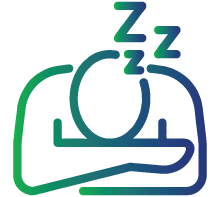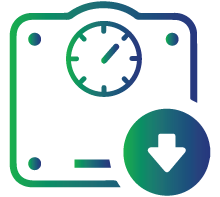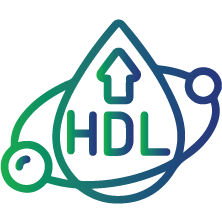
Blood Glucose Fasting (FBS) Test
What is Blood Glucose Fasting (FBS) Test
The FBS test, also called the Fasting Plasma Glucose (FPG) test or Fasting Blood Glucose (FBG) test, is one of the most common and reliable tests to measure blood sugar levels. It evaluates the glucose level in your blood after an overnight fast of 10–12 hours (no food or drink except water).
Glucose is the main source of energy for the body, and it comes from carbohydrates in the food you eat. Abnormal fasting glucose levels detected through an FBS test can indicate pre-diabetes or diabetes. That is why the FBS test / FPG test / FBG test is a cornerstone in diabetes diagnosis and management.
At Lupin Diagnostics, you can conveniently book FBS test online, and our affordable FBS test price ensures accessibility for everyone.
What is Blood Glucose Fasting (FBS) used for?
The FBS test (also known as the FPG test or FBG test) is critical for:
- Early diagnosis of diabetes – Detects high blood sugar before complications set in.
- Monitoring blood sugar control – Helps people with diabetes track their condition.
- Evaluating treatment response – Shows whether medications or lifestyle changes are effective.
- Screening high-risk individuals – Identifies people at risk due to obesity, family history, or age.
If you are planning to check your glucose levels, you can easily book FBS test online at Lupin Diagnostics, where the FBS test price is transparent and affordable.
Symptoms of Glucose Dysregulation

Sweating

Shakiness

Weakness

Excessive hunger

Dizziness

Headache

Blurred vision

Heart palpitations

Irritability

Drowsiness

Confusion

Fainting

Excessive thirst

Frequent urination

Unexplained weight loss
Who should get tested?
A blood glucose fasting (FBS) test is done in any of the following listed cases:

Age over 35 years

Obese or overweight individuals

High cholesterol

High blood pressure/hypertension
Test preparation
For accurate results, the FBS test / FPG test / FBG test requires fasting. You must:
- Avoid food and beverages (except plain water) for at least 10–12 hours.
- Schedule your FBS test in the morning for consistency.
- Inform your doctor about any medications, as some may affect fasting glucose.
When you book FBS test online, Lupin Diagnostics provides pre-test instructions and ensures clarity about the FBS test price.
Interpretation of results
|
Fasting Blood Sugar (mg/dL) |
Result indicated |
|
Less than 99 or lower |
Normal |
|
Between 100-125 |
Pre-diabetes |
|
126 and above |
Diabetes |
- Normal: An FBS test / FPG test / FBG test result below 99 mg/dL is considered healthy.
- Pre-diabetes: Levels between 100–125 mg/dL mean you are at risk and require monitoring.
- Diabetes: A reading of 126 mg/dL or higher indicates diabetes.
If abnormal results are found, your doctor may repeat the FBS test or recommend other diagnostic tests. Booking with Lupin Diagnostics is simple, you can book FBS test online and get results quickly at a transparent FBS test price.
Deviations from Normal Levels
- FBS test between 100–125 mg/dL- Suggests pre-diabetes, requiring lifestyle changes and follow-up testing.
- FBS test above 126 mg/dL- Indicates diabetes and requires immediate medical attention.
- High fasting glucose may also signal hyperthyroidism, pancreatic disorders, stress, or trauma.
- Low fasting glucose may suggest liver disease, adrenal insufficiency, or side effects of diabetes medication.
A reliable FBS test / FPG test / FBG test helps doctors diagnose the cause accurately. You can book FBS test online at Lupin Diagnostics, where the FBS test price is competitive and affordable.
FAQs
What is the turnaround time for the FBS test?
The FBS test / FPG test results are usually available the same day. Patients who book FBS test online with Lupin Diagnostics receive reports promptly at a clear FBS test price.
Are there risks associated with the FBS test?
The FBS test is safe, with only minor discomfort at the blood draw site. Risks like bruising or dizziness are rare and temporary.
How is the FBS test different from the random blood sugar test?
The FBS test / FPG test requires overnight fasting, while random blood sugar can be tested anytime. The FBS test is more accurate for diagnosing diabetes.
What do high fasting blood sugar levels mean?
High FBS test results may indicate diabetes, hyperthyroidism, or pancreatic problems. Doctors may suggest repeating the FPG test or additional tests for confirmation.
What foods can lower fasting blood sugar levels?
Eating high-fiber foods, vegetables, legumes, and lean protein, along with regular exercise, helps maintain normal glucose. Regular FBS test / FPG test monitoring is recommended.
How often should I take the FBS test?
- At-risk individuals- every 1–2 years.
- Diabetic patients- more frequent monitoring.
You can book FBS test online anytime at Lupin Diagnostics at an affordable FBS test price.

